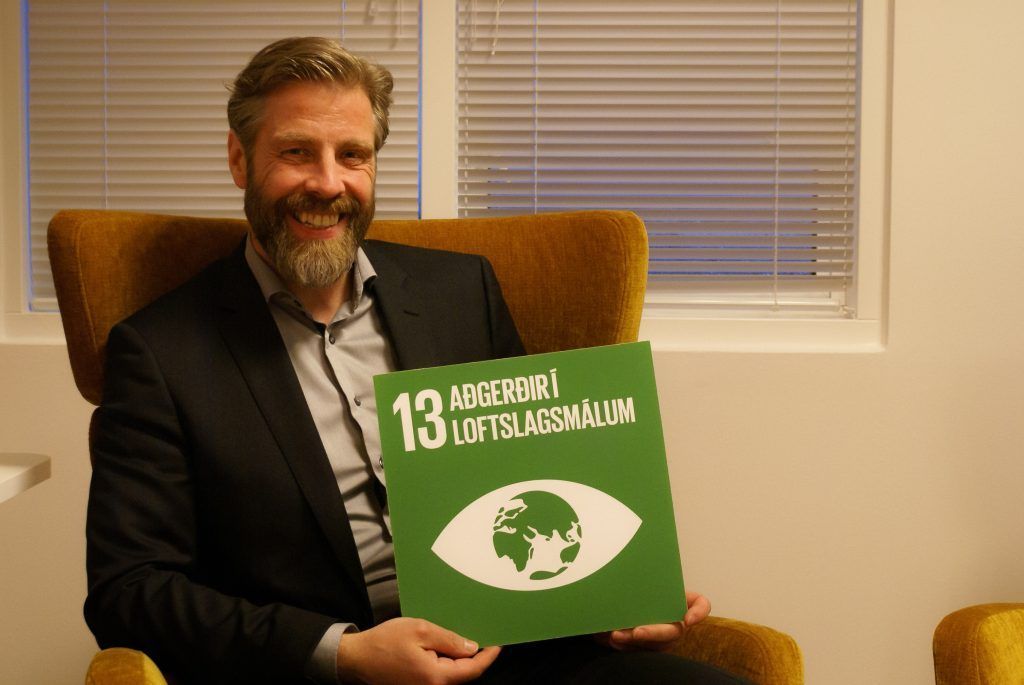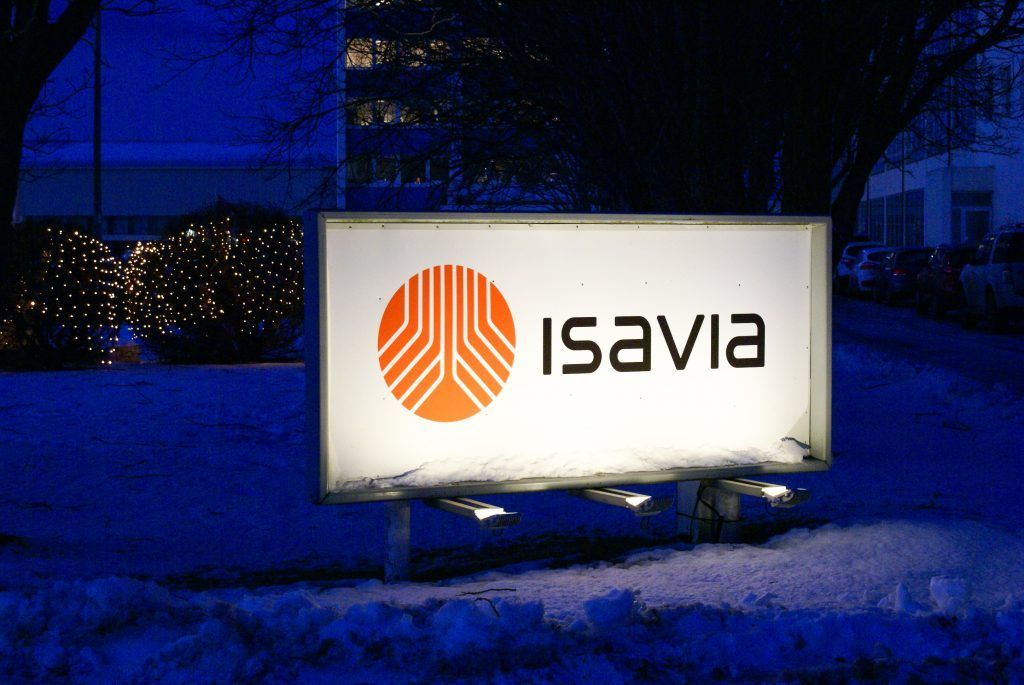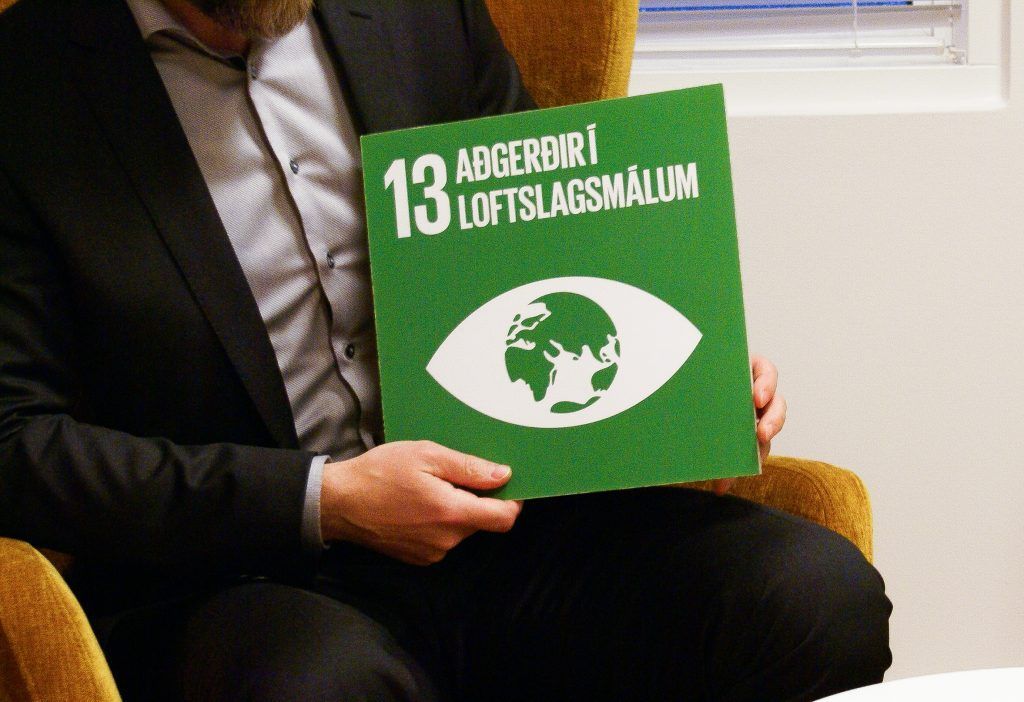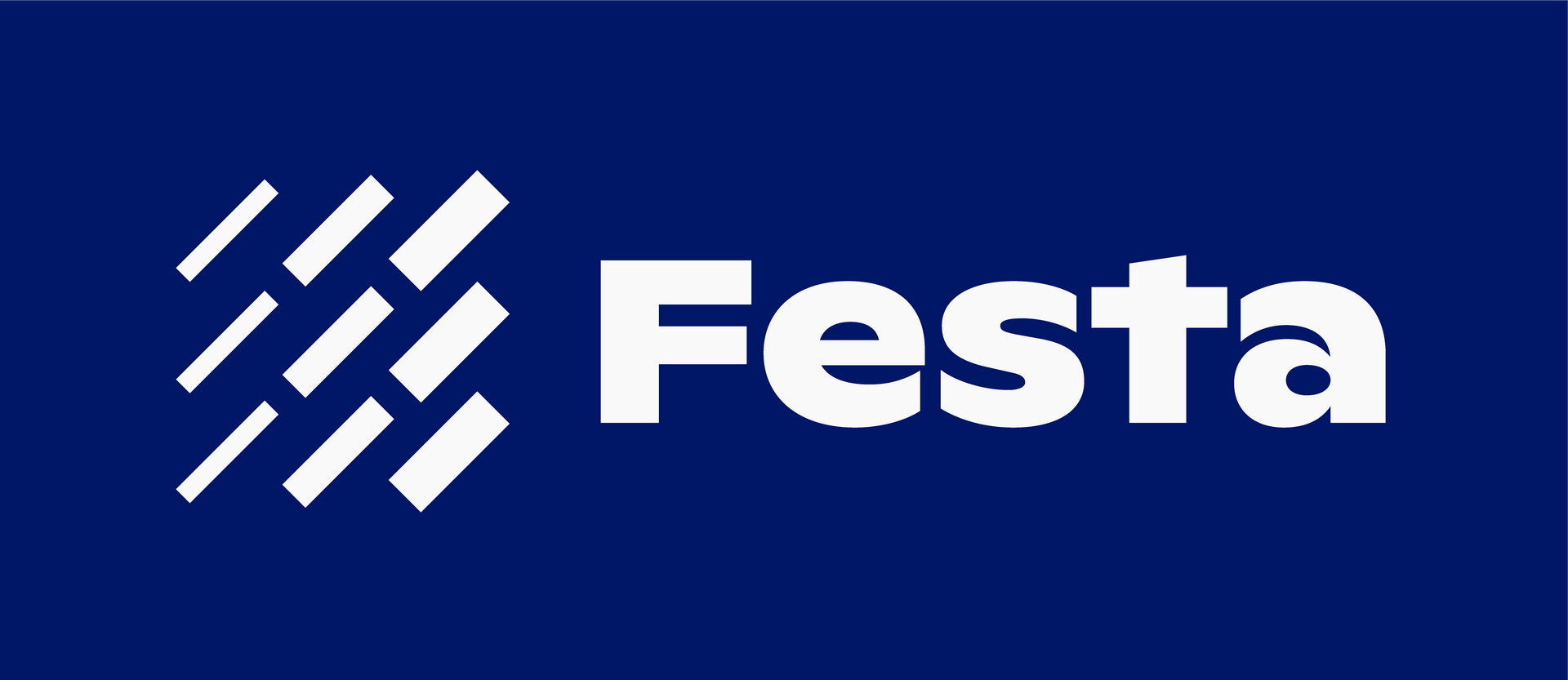Auratal: Hagnaður af sjálfbærni
Isavia
Áhersla á sjálfbærni er arðbær fjárfesting til framtíðar
Markviss áhersla á samfélagsábyrgð og sjálfbærni er fjárfesting til framtíðar að mati stjórnenda hjá Isavia. Sveinbjörn Indriðason, forstjóri, segir slíka vegferð ekki spretthlaup heldur langhlaup. Hann trúir því að fyrirtæki sem setji sjálfbærni á oddinn komi til með að lifa lengur á markaði en þau sem láta það undir höfuð leggjast. Isavia hefur á undanförnum árum hlotið mikið lof fyrir markvissa og mælanlega stefnu í samfélagsábyrgð en samfélagsskýrsla þeirra var á síðasta ári valin sú besta af hálfu Viðskiptaráðs Íslands, Stjórnvísis og Festu – miðstöðvar um samfélagsábyrgð.

Sveinbjörn Indriðason, CEO of Isavia
„Stefna Isavia í samfélagsábyrgð segir að félagið skuli stuðla að jafnvægi milli efnahags, umhverfis og samfélags með sjálfbærni að leiðarljósi,“ segir Sveinbjörn. „Við viljum byggja upp rekstur sem er sjálfbær til lengri tíma litið, í samstarfi og sátt við viðskiptavini og aðra hagaðila og vinnum að góðu starfsumhverfi og ánægju starfsfólks félagsins. Við setjum okkur árleg markmið í málaflokknum og vinnum markvisst að úrbótum. Við birtum svo upplýsingar um framvindu samfélagsábyrgðar í samræmi við viðmið GRI – Global Reporting Initiative og UN Global Compact, sem við erum aðilar að.“ Fyrirtækið tekur þar að auki mið af heimsmarkmiðum Sameinuðu þjóðanna í markmiðasetningu sinni en sérstök áhersla hefur verið á heimsmarkmiðin heilsa og vellíðan (númer 3), jafnrétti kynjanna (númer 5 ), ábyrg neysla og framleiðsla (númer 12), aðgerðir í loftslagsmálum (númer 13) og samvinna um markmiðin (númer 17).
Although it is not always obvious how the financial benefits of pursuing social responsibility are realized, Sveinbjörn says that he feels that this increases the company's competitive advantage, customer trust and strengthens a good image. "We must also not forget the importance of wanting to be a desirable place to work, and these emphases are part of that effort." However, he says that in his opinion, companies should not look solely at financial benefits when formulating a social responsibility policy. "We are a large company and we are delivering financial results. At the same time, we are having an impact on our environment."
"So it can be said that by focusing on sustainability, we are returning to society what we have taken to create a dividend."
Sveinbjörn clearly feels that society's demands on companies in Iceland are changing. "We feel that our stakeholders are demanding that we show social responsibility, and this is also something we want to do well in. We understand our responsibility very well and the weight we can put on the scales is heavy, and this harmony in the operation of companies with the environment and society will sooner or later affect the decisions of our customers."
He says that all companies in Iceland should be able to work towards a positive operating result at the same time as they work towards the common good – the two cannot be set against each other. “No company operates in a vacuum, we are all connected in some way and have an impact and are responsible. Companies that do not define their stakeholders and address their needs and demands will quickly lose their competitive position. It is important to view the social projects we undertake today as profitable investments for the future,” says Sveinbjörn, who was Isavia’s CFO before taking on the role of CEO. He admits that at first glance he saw social responsibility as a costly project with no obvious benefits. However, this changed when he learned what responsible business practices really are.

"We see all around us different companies that are well-run and return a profit to their owners while contributing to society, and I'm not looking at companies that only support various causes, which is all well and good, but at the value creation that the company delivers to society. I have no doubt that social responsibility is important for good business. In addition, there is a demand from investors, boards of directors and credit institutions to handle that part of the operation."
"The benefits of social responsibility are so great that it aligns with the vision and values that each company stands for."
Jafnframt hafa starfsmenn Isavia fundið fyrir því að með því að rýna vandlega í stöðu fyrirtækisins í samfélagi á hverju ári, greina áhættuþætti og skoða hvernig betur megi fara séu þau betur í stakk búin til að bregðast við breytingum og kröfum sem verða í ytra umhverfi fyrirtæksins. „Þannig koma meðal annars ný lög og reglugerðir, þarfir og kröfur viðskiptavina og hagaðila okkur ekki að óvörum.“

Isavia takes the global goals into account in its planning.
When asked how the company measures the financial benefits of its actions, he says that increased financial profitability is not a key prerequisite for the company to undertake socially profitable projects. "As I mentioned earlier, some of the goals are easily measurable in terms of financial benefits, such as reducing fuel costs or the amount of waste that is released. Other issues need to be viewed in a larger context, and then it is important to understand, among other things, which actions lead to a certain result, how that result is achieved, and how that result affects social, environmental and economic factors. Putting a price tag on actions certainly makes all decisions easier, but on the other hand, it is often more difficult to evaluate actions that are related to social or environmental issues financially."
„Það skiptir miklu máli að samfélagsábyrgð sé óaðskiljanlegur hluti af stefnu hvers fyrirtækis og að ábyrgð á hverjum hluta hennar sé skilgreind á mismunandi stjórnstigum. Þetta þarf að endurspeglast í ákvarðanatöku fyrirtækisins hverju sinni,“ segir Sveinbjörn.




